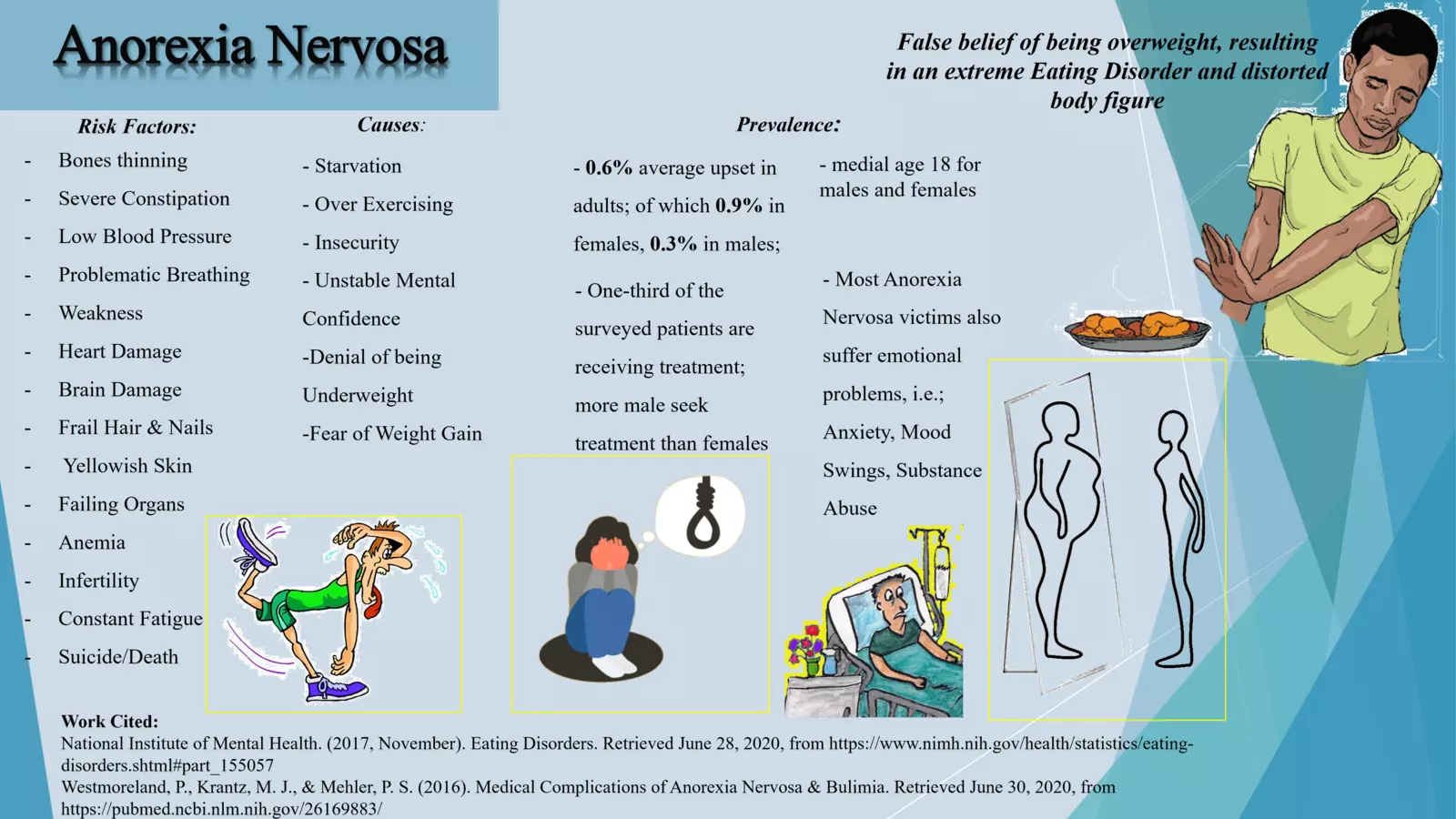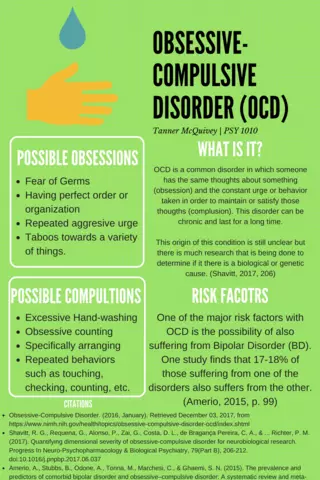Comments
- No comments found

Eating disorders are behavioral conditions of eating disturbances.
Common types are anorexia nervosa, bulimia nervosa, binge eating disorder (BED), other specified feeding and eating disorder (OSFED), rumination disorder, orthorexia and compulsive exercise. In the US, about 11 million people have an eating disorder.
Obsessive Compulsive Disorder [OCD] describes conditions of compulsive behaviors and obsessive thought with promptings and anxiety. OCD affects around 2.5 million US adults.
The brain can be better described as a thought organ, not a neuronal — chemical or electrical one. Those are builders of its interactive works, but the brain is more about thoughts, than about those.
They are studied for their impact on the whole, some are tracked to know their contribution, but the broad giving of the brain is thought.
The brain is unique, such that comparison with computers or other objects comes short. However, there are objects where the whole is something else from the components, even when components are similarly present in others.
Electronics devices have similar components, but adapted differently for outcomes.
Across mammals, the human brain’s specificity of thought differentiates it — by far. It is thought and the uniqueness of memory that makes human intelligence unparalleled.
Thought, though dominant for experiences with the external world, has been starved of the attention that neurons have, or that genetics has, or that other areas of biology have.
The problem with thought is also a problem of measure, which is also a problem of straightforward source, which is also a problem of the unknown of what the memory stores.
Where does thought really come from? Neurons, just like that, are not the correct answer. In what form does the memory store information? Engrams are not the answer.
Engrams are labels of the smallest unit of memory without saying the quantity of storage, or the uniform basis of storage, before seeking the smallest unit. It is like saying volts without finding what voltage should be, or saying kg without knowing what mass is and so on. The label of engrams also helps to do what for an individual with memory loss?
Thoughts can be sickness in a lot of conditions, for example in eating disorders and in obsessive compulsive disorder. These disorders have less to do with the interacting matter, but more to do with the interaction elements — thought.

Most thoughts come from the memory, but the principal emerging points for thoughts in the brain, as postulated, is sensory integration in the thalamus and the olfactory bulb.
Any internal or external sense becomes an input that gets integrated then relayed to know, feel and react. Knowing is the memory, with stores and groups. Stores move across groups in the memory, defining how interactions are made with the external.
Theoretically, there are stores that visit groups they should not, resulting in conditions for some. There are groups that move to the principal spot, attracting different stores becoming problematic for everything else.
Neuroimaging does not see thought, show thought or represent thought. Neurotechnology accesses limited forms of thought from certain localized neurons, but the expanse of thought remains untapped.

How does thought transport in the brain in eating disorders? How do memory stores transport across groups in OCD? The answer would open up new paths per interaction model of the brain, not just bioelectrical or chemical activities of neurons.
Leave your comments
Post comment as a guest